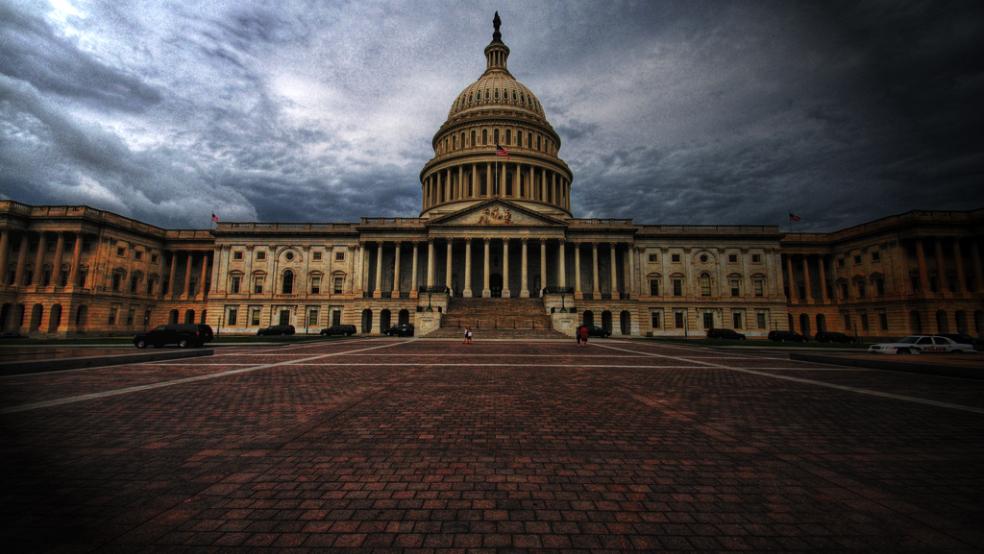With the House Republican leadership now in total chaos and no real idea of who will succeed John Boehner as Speaker, Congress and the Obama administration are facing a whole new layer of uncertainty over whether they can meet looming deadlines to keep the government afloat and avert a first-ever default by the U.S. Treasury.
The original game plan called for the retiring Boehner to work closely with Senate Majority Leader Mitch McConnell (R-KY) and the White House to negotiate compromises on the most critical budget and fiscal issues while House Majority Leader Kevin McCarthy (R-CA) – Boehner’s heir apparent -- assumes the reins of the Speakership by the end of the month. Now, with McCarthy’s shocking announcement on Thursday that he was pulling out of the race in the face of strong opposition from the most conservative members of the GOP conference, there is now considerable confusion over who really speaks with authority for the party.
Boehner Resignation Increases the Prospects for a Government Shutdown
Republican presidential frontrunner Donald Trump took to Twitter to celebrate McCarthy’s decision, writing, “Great, Kevin McCarthy drops out of SPEAKER race. We need a really smart and really tough person to take over this very important job!”
Rep. Mick Mulvaney (R-SC), a ringleader of the 40-member right-wing Freedom Caucus, insisted that Congress could get its work done while the House Republicans resolved its leadership dispute. “We do need to get this taken care of – sooner rather than later. We cannot let it drag out. At the same time, we can walk and chew gum.”
However, Steve Schmidt, a Republican political consultant, told MSNBC that it’s not clear at all who will be the next speaker, and that the uproar could have a profound effect on the upcoming budget and fiscal deliberations. “I think also today, there is an astronomically greater likelihood now of government shutdowns, of possible default on the full faith and credit of the United States, so this will have pretty profound implications for a party that is seeking the White House after having lost the popular vote five out of the six last elections.”
Although the new fiscal year began Oct. 1, lawmakers and the President are nowhere near agreement on a new budget for fiscal 2016, an increase in the Treasury’s borrowing authority—known as raising the debt ceiling, a new highway bill, and several other vital fiscal measures. Boehner, whose retirement was hastened by an anti-Boehner rebellion among House conservatives and outside conservative groups, announced September 25 that he would leave Congress October 30 after helping McCarthy with the toughest budget challenges.
Related: Kevin McCarthy’s House of Cards Crumbles
With McCarthy now staying put as Majority Leader, there may be pressure on Boehner to delay his departure until Congress and President Obama can iron out their differences.
Technically, Congress has until Dec. 11 to approve a final budget or extend existing spending authority, but GOP leaders and the president appeared determined to work out a comprehensive budget agreement before then to resolve major differences over spending policy. Republicans are seeking to raise the cap on defense spending by $38 billion next year without providing comparable new spending for Obama’s key domestic programs. Obama has threatened to veto any budget plan that doesn’t include a substantial increase in domestic spending.
But the immediate challenge is striking an agreement on raising the debt ceiling to enable the Treasury to cover federal government obligations. The Treasury Department has put Congress on notice that the government will run out of money to meet all its obligations on November 5 – triggering the first default in U.S. history.
Related: The Next Debt Crisis Could Be Much Worse than in 2013, GAO Warns
Treasury Secretary Jack Lew repeated that warning on Thursday during an interview with National Public Radio and insisted that the administration refuses to negotiate side deals as part of an agreement to raise the debt ceiling.
The debt ceiling is a legally imposed limit on how much the Treasury may borrow to pay debts already incurred by the government. The debt ceiling for decades has been a political football and a rallying cry for both parties to block future spending. Congress and the Obama administration came within hours of defaulting on the debt in 2011, and since then Republicans have repeatedly threatened to use it as leverage to extract budget concessions from the
“The utter chaos of the Republican party must not threaten the full faith and credit of the United States and the American people,” Senate Minority Leader Harry Reid (D-NV), said in a statement “While negotiations on a budget deal continue, we should work together immediately to take the threat of default off the table.
“Responsible Republican leaders should bring a clean debt ceiling increase to the floors of the House and Senate immediately and let it pass with a bipartisan coalition, as it certainly would,” he added.
Here are the crucial deadlines for action by Congress for the remainder of the year:
- October 29 – Approving new Highway Trust Fund legislation.
- November 5 – Raising the debt ceiling to avoid a first-ever default.
- December 11 – Adopt a new budget or approve another continuing resolution.
- December 31 -- Renewing a series of expiring tax provisions.
- Late December – Addressing shortages in the Social Security Disability Insurance Trust Fund.





